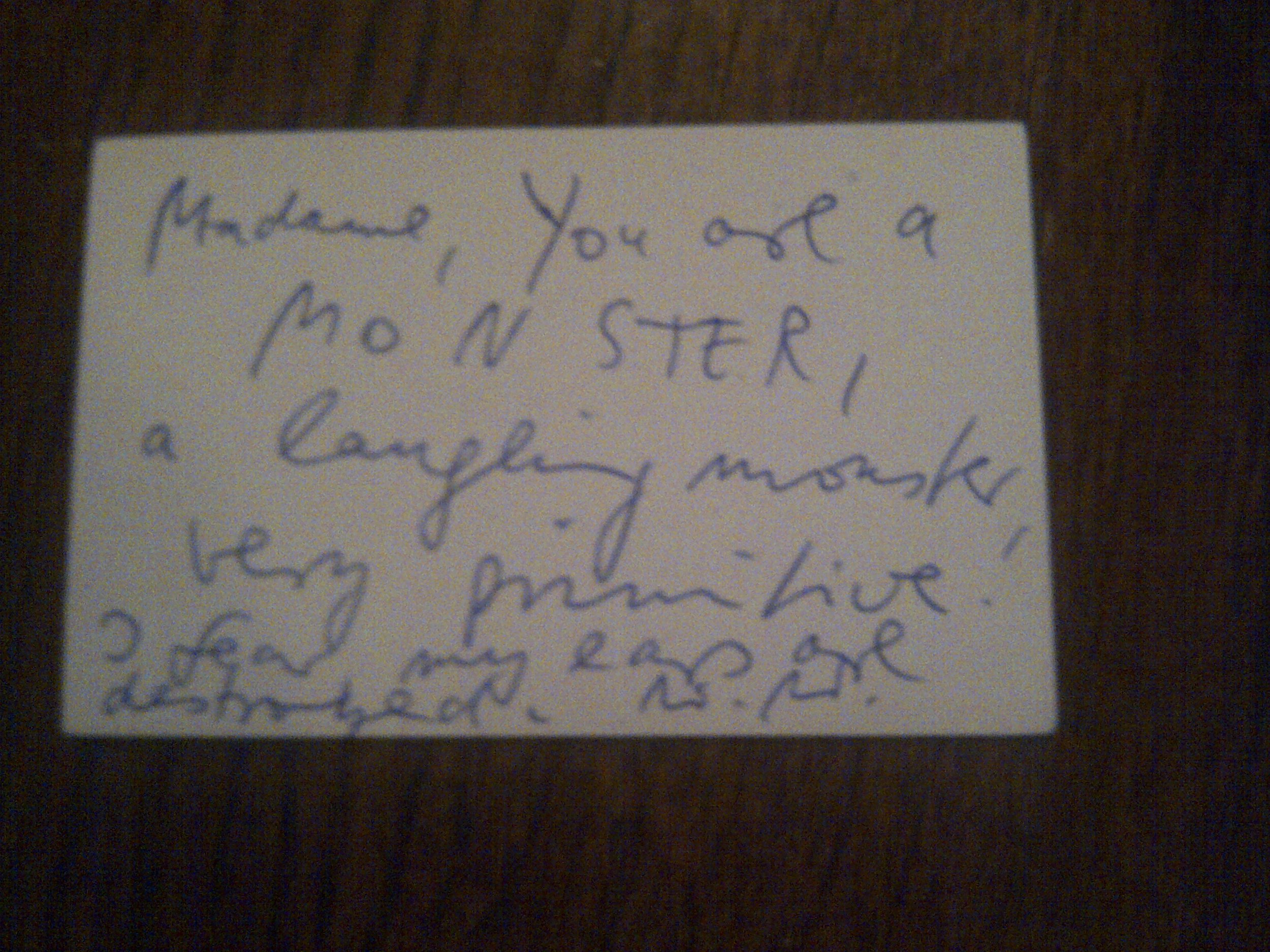I saw Bryce Covert speak in March at the Women, Action and Media conference in New York City, when she spoke about being a financial reporter, something I may now be on my way to becoming. She was cheerful, articulate, thoughtful and encouraging. Since then, I've followed her excellent work on women in the economy in the Nation, GOOD, Alternet and other magazines and websites. Covert, 27, is now editor of the Roosevelt Institute's New Deal 2.0 blog, and has come out with some extremely keen analysis lately of how the economic crisis has affected American women. I spoke to her about her career, financial reporting, covering women's issues, and the end of secretaries. How did you wind up as a financial reporter?
When I graduated, I went into teaching for two years. I had this brilliant scheme to teach and write fiction at the same time, but it turns out that teachers don’t have free time, so the scheme didn’t play out so well. After that I wanted to do something where I was writing every day, because if you want to write, you have to build it into your every day life. I applied to a lot of entry-level jobs, in a whole host of areas. A lot of the paying journalism jobs are in financial reporting, because there’s demand for insider knowledge. I got a job at mergermarket – a completely entry-level job where half of it was data entry. But they promoted people very much based on merit, with little regard for age or seniority, so I moved up really quickly. I started in what must have been early 2008, so it was really interesting. I came in just before Lehman Brothers, just before everything hit the fan. Everything changed, so I thought, “I know as much as anyone.”
How did you satiate, shall we say, your feminism in that role?
That was a struggle I had for a while. In the beginning there was such a steep learning curve that financial reporting was my whole life: I learned the skills of making sources, trading info, breaking news and things like that, that I hadn’t picked up anywhere else. But when the learning curve leveled off, I needed to tend to the rest of myself. I volunteered with the Obama campaign because I’ve always been really interested in politics. At some point I started a blog. I was full of ideas, but I didn’t have the bandwith to pitch everything every time, so it was a great place to put everything down. I got on Twitter, and started connecting to people that way. That helped a lot. I ended up leaving mergermarket and getting a job at the Roosevelt Institute, where of all that political, feminist stuff is tended to in a very substantial way.
Although a number of think tanks are doing great work on these issues, I don’t see a lot of reporting that looks carefully, deeply and thoughtfully at the numbers about women and the economy. Am I looking in the wrong places? Whose work do you follow?
There’s Nancy Folbre, who blogs at The New York Times, and some people at Alternet, like Lauren Kelley. I do think that it’s something of a bare space, and I think that comes from the separation that a lot of people have in their brains between economic and social issues, and between economics and feminism. There’s this thought that economics is about these formulas, supply and demand, input and output, numbers, policies, and that those things are very separate from social issues, which are touchy-feely, emotional things, or activism.
I don’t think that line can really be drawn, because economics have social impacts and social issues have extremely important economic aspects. So that’s where I’ve decided to plant myself. There’s also a gender split – the field of economics tends to be very white, and very male, whereas writing about feminist issues is pretty much the purview of women.
From your work and the work some great policy think tanks, women – particularly in the U.S. – have it very, very bad, particularly at the lower ends of the economic spectrum. At the same time, we’re hearing a lot about ‘investing in women.’ At a policy level, where do these facts and these rhetoric meet, and what do you think about this shift in rhetorical strategy?
The rhetoric is a good sign, because it’s better to have people talking about it than not. In Obama’s jobs package, there’s a lot of recognition of jobs typically held by women, like teaching. And they put out a fact sheet about how his policies affect owmen, which is awesome. That said, doesn’t seem to be going anywhere.
But the “Girl Effect” phenomenon, this idea that if you invest in women, you’ll save the world, is troubling. Now it’s on women in the developing world to invest in their communities and save them, and that seems a little bit fraught. Now we’re supposed to invest in them because it’s “smart economics,” and it does seem to pay off economically, and it does seem to convince people.
Here’s the problem, though: even if it weren’t economical to invest in women, we should still be doing it. Even if it’s not going to bring developing countries into the global economy, we should still do it.
Tell me about your current research at the Roosevelt Institute.
First we were examining the public sector data where a lot of jobs traditionally held by women were eliminated, and the numbers there made sense. But when we looked at the private sector numbers by occupation, we found that a lot of administrative assistants have been laid off. The recession has been an excuse to fire them and tell other people to do their work. My boyfriend has the new iPhone 4S, which has Siri. She -- or rather, the machine – will make calls for you, schedule things for you. It’s the latest and most tangible iteration of how secretaries have been replaced by technology.
But when I spoke to someone at an association of administrative professionals, she noted that the women who do administrative assistant work are capable of a lot of functions that can’t be mechanized, like working with Excel or doing Powerpoint, which are still needed. But they’re not being invested in, and that’s the real problem. Theoretically some day this economy will turn around and companies will not have invested in your most important resource: their employees.


